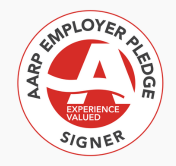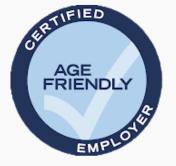Top performers are always in demand, and this is especially true now, as more companies are competing for talent in a “seller’s market.” Consequently, it’s becoming more difficult for organizations to hire the kinds of high-value professionals that are so crucial to a growing business. Below are the top five reasons we have seen great companies lose out on their next great hire, with key suggestions on how to avoid missing out on hiring your next rock star!
1) Waiting too long to make the offer
We are seeing an increase in the number of businesses who make an offer to a great candidate, only to find out he/she has recently accepted another position or is no longer interested. If you drag out the hiring process, you run the risk of:
- Looking disorganized
- Sending the message that you are not interested in the candidate
- Sending the message that the position is not very valued
- Allowing another business to pursue your candidate
These are all red flags to job seekers who are in demand and will incent them to look elsewhere. Before even kicking off your candidate search, create a hiring schedule. Block off time on your calendar to review resumes, conduct first- and possibly second-round interviews, and discuss with your team, if applicable, who the finalist is. Do your very best to stick to your hiring schedule.
2) Scheduling too many interviews
It is important to take the time to thoroughly screen and interview prospective candidates. Yet, more than two or three rounds of interviews, especially for entry to mid-level positions, sends the message that you are indecisive or not quite sure what skills or kind of person you want for the role. If you have a number of colleagues who need to interview candidates, try scheduling over one or two days. Asking candidates, especially ones that are in demand, to come back multiple times, may alienate them by implying that their time is not valuable. The way a candidate is treated in the interview process is usually a good indication of how they will be treated in the job, and top candidates know this.
3) Going silent
There are times when delaying a hire due to other priorities is inevitable. If that is the case, communicate, communicate, communicate! Nothing will turn off a prospective hire more than silence. If you have to delay an interview or a formal offer, for whatever reason, contact (preferably call) the prospective candidate and let them know that you are still considering them for the position but need to push out the decision date. If you initially indicate you will make a decision by end of week, but then get sidetracked or want to interview more people, let those that you are still considering know immediately that you extended the deadline. While you still may lose the candidate’s interest, you can minimize this risk by communicating, updating timeframes, and setting expectations. It will go a long way.
4) Not offering enough flexibility
While many companies are continuing to allow remote and hybrid work, there are still some who prefer that new employees work on-site. Many new hires understand and even want to be on-site while acclimating to a new environment. However, the vast majority of workers today clearly prefer a flexible work model. Those companies and organizations that offer little flexibility when it comes to schedule and location, will find themselves continuing to lose out on top talent. Top job seekers today consider flexible work the ‘norm.’ For top candidates who are highly skilled and valued, if you don’t offer them some sort of hybrid or flexible schedule, they will find another employer who will.
5) Not selling strengths of your company
Job seekers need to be able to articulate in an interview why he/she is the best candidate for the job. However, “the sell” is a two-way street. Once you have identified qualified candidates, now more than ever, you need to spend time selling the strengths of your company and why the candidate would want to come work for you. When making an offer, always assume that your top candidate is considering an alternative one. Besides compensation, try to assess what is important to the candidate such as flexible hours, remote work, benefits, PTO, volunteer opportunities, etc. and highlight those that your company offers and values.
Ellen Grealish is co-founder of FlexProfessionals, LLC, a niche staffing company specializing in sourcing professionals for part-time, project-based and flexible work arrangements. Contact: gwenn@flexprofessionalsllc.com.









